There is a column in The Guardian called “Books that made me”. In it, all sorts of questions about books are asked of the author, whom each week is chosen to talk about his or her literary taste and experience.
Whenever I read the title of the column, my mind goes to those books that really dug deep into me; those book that I will never forget, that have shaken me up deeply, that have become part of me.
Despite reading a lot, the books that really made me are few. They all have one thing in common: they were all written by or tell the story of people who had some sort of experience outside of their cultural boundaries.
After finishing them, they remained with me. And by this I don’t only mean that I remember their content well. They got deep down, questioned my assumptions, touched me and made me suffer, taught me things I was not aware of, and made me a more complete person.
I am deeply grateful to each one of the authors that poured passion and time in their writing, generously contributing to a more informed, empathic and human world.
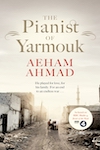
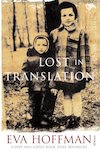
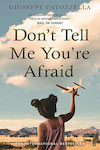

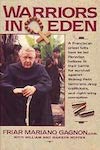

The pianist of Yarmouk, Aeham Ahmad
Aeham Ahmad was born in Yarmouk, a Palestinian refugee camp in Syria. In this moving book, he tells his story from childhood to the moment he fled Syria to seek refuge in Germany. All of his life is very touching: it develops around the struggle his blind father experienced to make Aeham study music and become a famous piano player. It then takes us through the desperation of a besieged area under attack during the Syrian war. With simplicity and immediacy, Aeham manages to communicate the absurdity and inhumanity of what is going on in his country.
Lost in Translation, Eva Hoffman
This is the autobiography of Eva Hoffman, a Polish-born author whose parents decided to flee their country when attacks on the Jewish population were on the rise after WW2. Eva shares her feelings from the moment she is told that she has to say goodbye to her home (she was 13 at the time) to when she finally feels settled in Canada. It is an amazingly delicate account of how devastating being uprooted can be, and of the complexity and fascination that adapting to a different culture brings.
Don’t tell me you are afraid, Giuseppe Catozzella
This book will stay with me forever in ways I cannot even describe. Giuseppe Catozzella, an Italian writer, collected the story of Samia Yusuf Omar, a Somali athlete who gave all she could to reach Europe where she was hoping to be properly trained and make her dream of living as an athlete come true. Her story shows what it means to be born on the wrong side of the world, and talks about determination, passion, and humanity.
Mi sa che fuori è primavera (I think that spring has arrived – my translation), Concita De Gregorio
Available only in Italian, this book is a breath of hope and love. In 2011 Italian Irina Lucidi, who had married and then divorced a Swiss man, went through the most unbearable tragedy I can think of: her ex-husband abducted her two 4 year old twin daughters and committed suicide one week after without telling anyone what he had done with the girls – neither of whom was ever found. Irina found the strength to look ahead, created a foundation to help parents of missing children, and has inspired thousands with her story.
Warriors in Eden, Mariano Gagnon
I cannot recommend this book enough. It is an invaluable account of events in the most remote areas of Peru during the years of terror and of the Fujimori government. But first and foremost it shows what love and empathy for different individuals and cultures can do. Mariano Gagnon is a Franciscan friar who was living with the Ashaninka populations of the Peruvian Amazon Forest when Sendero Luminoso, the terrorist movement that shook Peru in the ‘80s, started its brutal attacks on the defenseless population. He helped the Ashaninka groups resist, organised them, and helped them to flee when it became necessary. This book shows that humanity that has no borders. It is thanks to the efforts of people like Padre Mariano and other wonderful human beings that many Ashaninkas managed to save their lives during one of the darkest pages of Peruvian history.
Where the road leads, Jean Calder
Jean Calder was born in Australia and moved to Lebanon in the ‘70s to work as physiotherapist for a project with the Lebanese Red Crescent. She adopted three Palestinian disables refugee children. Her book takes us through her life at the service of the most vulnerable, and tells of the myriad adventures she had to go through for her beautiful, unconventional family. Jean moved to Gaza (where her children came from originally) to continue her work in the Red Cross community. Today she is 83 and still works and lives alongside the most needy. I interviewed Jean when I was living in Palestine – she is one of the most amazing and deeply human people I have ever met.
Claudia Landini
April 2019
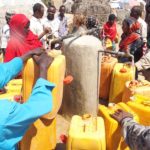 Previous Post
Previous Post Next Post
Next Post